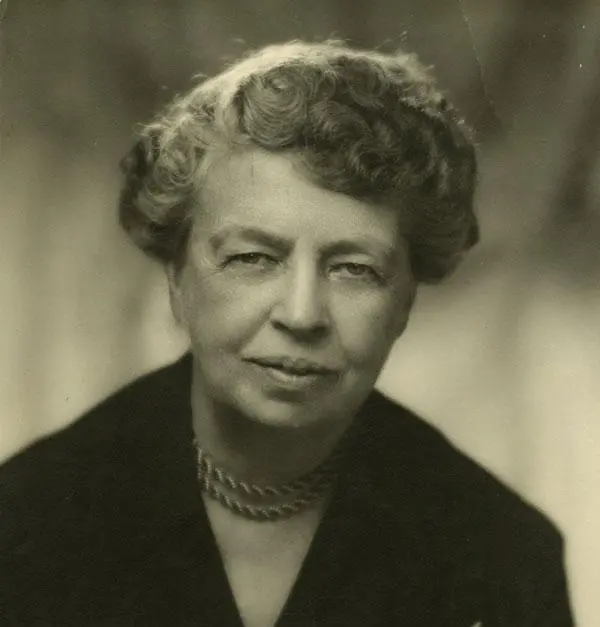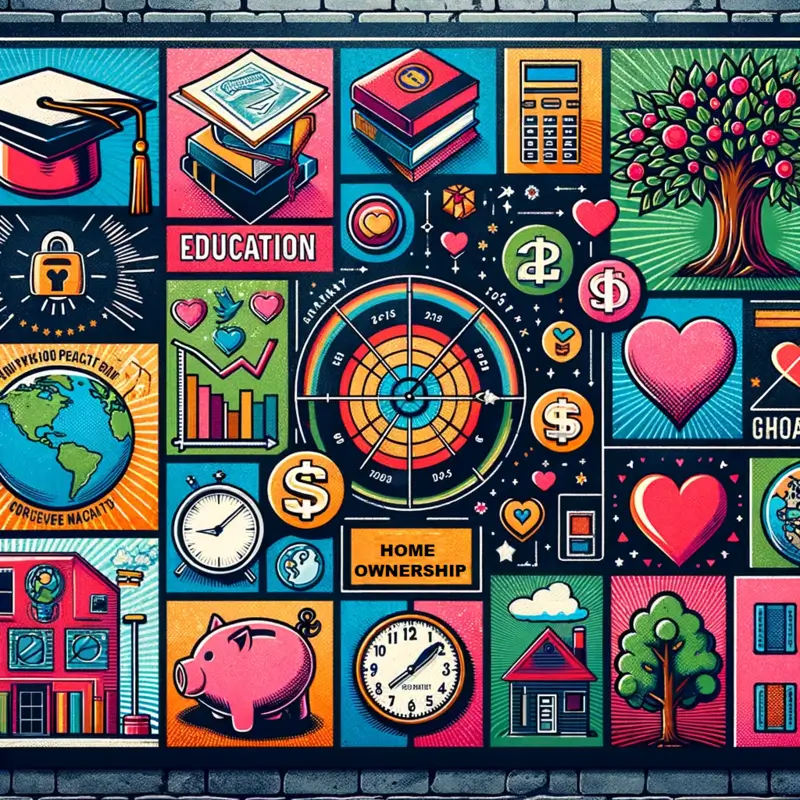As an adult, have your goal-setting routines started to feel a bit predictable? If the same old strategies no longer spark your motivation, it’s time to shake things up! Ditch the overly structured methods and try a more creative approach designed specifically for adults.
Here’s what you’ll learn in this article:
- How to visualize your goals in ways that resonate with your adult perspective.
- The power of storytelling for shaping compelling goals that are meaningful to you.
- Ways to turn artistic expression into a powerful tool for mapping out your ambitions.
- How to transform your goal-setting into a playful and engaging process.
Ready to ignite your creative goal setting activities for adults that truly inspire you? Let’s dive in!
30 Creative Goal Settings for Adults
Forget those rigid goal-setting worksheets and step into a world of possibilities! These 30 creative strategies are designed to fire up your imagination and add a touch of excitement and engagement to the process.

Whether you’re looking to learn a new skill, tackle a passion project, or simply shake up your routine, these ideas will jumpstart your journey.
1. The “100 Wishes” Challenge
This exercise gets your creative juices flowing! Grab a notebook and jot down 100 things you wish to experience, learn, achieve, or create in your lifetime. Don’t hold back – dream big, be specific, and let your wishes take shape.
After, review your list and circle a few that ignite the biggest spark of excitement. Those circled wishes can become the foundation of new goals!
"Everything you can imagine is real."
 Pablo Picasso
Pablo Picasso 2. Design Your Ideal Day
Close your eyes and picture your perfect day. What activities fill your time? Who are you with? How do you feel? Now, turn that vision into goals.
Can you incorporate elements of your perfect day into your real life? Break down what makes that day so ideal and aim to bring those pieces into your everyday routine.
3. The “30-Day Experiment”
Always wanted to try yoga, learn a new language, or start journaling? The 30-day experiment is your chance! Choose something you’re curious about, commit to trying it for 30 consecutive days, and document the experience.
You might uncover a hidden passion or simply learn something new about yourself!
4. Create a Movie Trailer for Your Life
If your life were a movie, what would the trailer look like? What would be the highlights, the soundtrack, and the overall theme? Get creative with editing software or use your imagination to create a mental trailer.
This helps you visualize your aspirations and sets a cinematic tone for your goals.
5. The Gratitude Jar
Start a gratitude jar! Each day, write down one thing you’re grateful for and drop it in. At the end of a set period (a month, a year), revisit your jar.
These notes of gratitude can be inspiration for future goals aligned with what brings you joy or serve as reminders for what you already value.
6. Build a Vision Board
Gather magazines, photos, inspirational quotes – anything that speaks to your dreams. Dedicate an afternoon to creating a collage that represents your goals, be they related to career, travel, relationships, or any other area of your life.
Keep your vision board in a prominent spot as a daily source of motivation.
"The only way to do great work is to love what you do. If you haven’t found it yet, keep looking. Don’t settle."
 Steve Jobs
Steve Jobs 7. Write a Letter From Your Future Self
Imagine yourself five or ten years from now. What have you achieved? What does your life look like? Write a letter from this future self to your present self, full of advice, encouragement, and a vivid description of your successes.
Use this letter as a roadmap for the kind of future you want to create.

8. The Skill Swap
Find a friend, colleague, or online community member with a skill you’ve always wanted to learn. Offer to teach them something you’re good at in exchange!
This skill swap is a fun and collaborative way to reach a goal while helping someone else with theirs.
9. “Untraditional” Bucket List
Instead of grand adventures, focus on small, quirky experiences: eat at the oldest diner in town, attempt a new recipe every week, learn to juggle, or spend an afternoon cloud-watching.
This list will bring a touch of playfulness and unexpected learning to your goals.
10. Host an “Idea Party”
Invite a few friends over for an idea-generating brainstorm. Share your dream goal, and let the ideas flow!
This collaborative approach offers fresh perspectives and can turn a solitary goal into a shared source of excitement and support.
11. Design Your Own Challenge
Think of something that would push you outside of your comfort zone and create a personal challenge around it.
It could be a 30-day decluttering challenge, a month of daily meditation, or a commitment to try a new food each week. The structure is entirely up to you!
12. Soundtrack Your Goals
Create a playlist that embodies the energy of your goals. Is it upbeat and motivating? Peaceful and focused? Funny and lighthearted?
Let the music you choose fuel your actions and create a soundtrack for your journey.
13. Goal Mind-Mapping
Start with your central goal in the middle of a page. Then, branch out with all the related ideas, tasks, and resources that contribute to it.
Mind maps offer a visual way to break down goals into smaller, more manageable steps.
"The future belongs to those who believe in the beauty of their dreams."
 Eleanor Roosevelt
Eleanor Roosevelt 14. Find Your Goal “Mentor”
Do you admire someone who has achieved a similar goal? It could be someone you know personally, a public figure, or even a fictional character.
Analyze their path, the challenges they faced, and the decisions they made. Use their journey to inform your own goal-setting strategy.
15. Embody Your Goal
Think about how the successful version of yourself would act, speak, and make decisions.
Start to incorporate those qualities into your daily life as a way to “practice” achieving your goal and to keep your motivation high.
16. The “Gift of Time” Challenge
Instead of setting traditional goals, consider what you can “gift” to yourself and the world around you. Could you volunteer your time at a local organization, offer your skills to help a friend, or simply commit to acts of kindness each day?
This approach reframes goals as impactful contributions.
17. “Reverse Engineer” a Goal
Start with the end in mind! Pick a big, audacious goal. Now, work backward, outlining the key milestones you’ll need to hit to reach that target.
This can help break down an intimidating dream into concrete steps.
18. The “Mini Milestone” Celebration
Don’t wait until you reach the final goal to celebrate! Identify smaller milestones along the way. Reward yourself – even with a simple treat or self-care ritual – for these mini victories.
This boosts motivation and keeps you focused on the process, not just the outcome.

19. Create a “Goal Altar”
Designate a small space in your home as your goal-setting sanctuary. Fill it with inspirational objects, pictures, notes, or anything that represents your aspirations.
This space serves as a visual reminder to keep you connected to your dreams.
20. Join a “Goal Setting” Community
Find a group (online or in-person) where you can share goals, get support, and learn from others. Accountability and a sense of community can be powerful motivators on your journey.
21. “If Money Were No Object…”
Remove the limits! Brainstorm a list of goals you would pursue if money was absolutely no concern. This taps into your true desires and helps you see beyond the practical limitations that might hold you back in “real life.”
22. The “Character Development” Goal
Instead of focusing on an accomplishment, center a goal around who you want to become. Do you want to be more patient, assertive, or adventurous?
Choose a trait, and design actions and experiences that cultivate that characteristic.
"It does not matter how slowly you go as long as you do not stop."
 Confucius
Confucius 23. The Goal Artifact
Find or create an object that symbolizes your goal – a stone, piece of jewelry, or even a written phrase. Carry it with you or place it somewhere you’ll see it frequently as a tangible reminder of your aspiration.
24. Embody the Opposite
To gain insight into your obstacles, play “devil’s advocate”. Write a list of actions that would definitely prevent you from achieving your goal.
This awareness can help you identify habits or mindsets to shift for greater success.
25. Goal-Inspired Sensory Board
Think about the smells, textures, sounds, and tastes that are associated with your goal. Create a sensory board – a real-life collage of these elements – as a unique and immersive way to stay connected to your dreams.
26. 10-Minute Daily Action
Choose one small, actionable step that you can take every single day for 10 minutes to move closer to your goal. The consistency is more important than the size of the step!
27. Transform Fear into Fuel
List your top fears surrounding your goal. For each fear, brainstorm a corresponding empowering action you can take to counter it. This approach turns fear into a source of motivation.
28. The “What If?” Scenario
What if you guaranteed yourself success? Write down what your actions, mindset, and attitude would be like under that condition. Now try to embody that “guaranteed success” energy in your daily life.
29. The “Goal Soundtrack” Remix
Repurpose a well-known song, rewriting the lyrics to reflect your goal. Humor is encouraged! This playful exercise can help you approach your goal with a lighthearted perspective.
30. Role-Play a Successful Outcome
Close your eyes and fully visualize yourself having achieved your goal. Now, with a friend, act out a scene where you’re celebrating that success. Embodying the emotions of your victory solidifies your belief in its possibility.
Case Study: Emma Applying Goal Setting Activities
Emma, a 35-year-old accountant, felt a nagging sense of dissatisfaction with her life. A lover of exploring new places, she harbored a deep-seated desire to travel the world.

However, her busy schedule, financial concerns, and a touch of fear about stepping outside her comfort zone always seemed to get in the way. While she tried traditional goal-setting methods in the past, they felt too structured and ultimately failed to inspire any real action.
Creative Strategy
Desperate for a fresh approach, Emma heard about the concept of vision boards. Intrigued by the idea of visualizing her goals, she decided to try it.
One weekend, she immersed herself in travel magazines, Pinterest boards, and even dusted off old vacation photos. Emma meticulously selected images that sparked her wanderlust – bustling markets in Morocco, the breathtaking scenery of Iceland, volunteering with elephants in Thailand.
She wasn’t just focused on destinations; Emma included photos of cozy cafes, learning how to scuba dive, and attending a vibrant street festival.
The Results
- Visual Motivation: Emma strategically placed her completed vision board in her living room, where she would see it every single day. This constant exposure served as a powerful motivator, transforming her travel dreams from an abstract idea to a vibrant, ever-present reality.
- Pinpointing Her Passions: While initially overwhelmed by the sheer number of places she wanted to see, the process of building her vision board forced Emma to define her priorities. Instead of focusing on ticking countries off a list, she discovered a deeper desire for immersive cultural experiences, connecting with locals, and embracing the thrill of outdoor adventures.
- From Visualization to Action: With her wanderlust reignited, Emma felt a shift in her mindset. Her vision board became a blueprint for action. Inspired by the images of far-flung destinations, she dedicated time to researching specific locations, calculating travel costs, and even started brushing up on her Spanish vocabulary in preparation for a Central American trip.
- Ripple Effects: Emma’s newfound determination wasn’t limited to travel planning. The same adventurous spirit she envisioned for her future began to bleed into her daily life. She found herself signing up for a salsa dance class, joining a local hiking group, and volunteering at an animal shelter – all activities sparked by her desire for a more fulfilling and well-rounded existence.
Emma’s vision board became a catalyst, turning a vague wish into a focused and exciting plan. It empowered her to break free from routine and start taking tangible steps toward the life she truly wanted.
Important Note: I want to emphasize that achieving goals, even with a creative boost, requires dedication alongside inspiration. Emma’s travel journey isn’t about the vision board magically making everything happen; it’s about unlocking the motivation and focus to put in the necessary work.
Conclusion: It’s Time to Get Creative!
Traditional goal-setting can feel uninspired and restrictive. By infusing a bit of creativity, you open up a whole new world of possibilities!
Whether you craft a vision board, design your ideal day, or write a letter from your future self, these strategies bring a sense of playfulness and excitement to achieving your dreams.
The Next Step is Yours
I encourage you to try at least one or two of the creative goal-setting strategies we’ve explored today. Don’t worry about doing everything at once!
Start with the one that resonates the most with you, have fun with it, and see where it leads. Remember, goal setting is an ongoing journey, not a checklist to complete.
Embrace the experiment, and don’t be afraid to try new things as you discover what works best for you.
"The journey of a thousand miles begins with a single step"
 Lao Tzu
Lao Tzu You Have the Power
Ultimately, the most important ingredient in successful goal-setting is you. Your imagination, your unique desires, and your willingness to take creative risks hold the key to unlocking your full potential.
So go forth, dream big, and approach your goals with a spirit of innovation. The possibilities are truly endless!
Quiz Time!
Frequently Asked Questions
I’m not an artistic person. Can I still benefit from creative goal-setting?
Absolutely! Creativity applies to everyone, not just those gifted in painting or music. These strategies are about tapping into your imagination, exploring possibilities, and breaking free from a rigid approach.
Even the simplest acts like doodling on a vision board or journaling about your dream day can make a huge difference.
How often should I revisit my creative goal-setting activities?
This depends on your goals and personal preference. Vision boards might benefit from updates as your goals shift. You may want to do the “100 Wishes” exercise once a year and select new goals from that list.
Other strategies can be used whenever you feel stuck or in need of inspiration.
Do I have to choose just one strategy?
Not at all! The best approach might be a combination. Try a few different techniques, see which ones spark the most excitement, and create a personalized toolkit for setting and achieving goals.
What if my goals seem too unrealistic?
That’s where the fun begins! Don’t limit yourself in the early stages. Write down those big, audacious dreams and then explore how to break them down into smaller, achievable steps.
Even if you don’t accomplish everything on your wish list, the process gets you reaching further than you would with traditional goal setting.
Should I share my creative goal-setting activities with others?
That’s up to you! Some people find great support by sharing with friends, joining online communities, or even doing a “Goal Party.”
Others prefer to keep their goals and creative process private. Do whatever aligns best with your style and personality.




